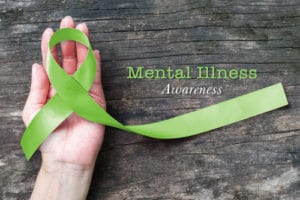The realms of addiction and mental health treatment, collectively referred to as behavioral health care, are often viewed as distinct, yet related issues. Many modern treatment centers care for both types of disorder, but creating a unified level of recovery is a challenge. However, according to a number of sources, addictive and mental disorders are more than just similar. Addiction is a psychological disorder.
Comparing and contrasting definitions
Before delving into the crossover between these unique afflictions, it is essential to understand their official definitions. The Substance Abuse and Mental Health Services Administration (SAMHSA) defines:
- Addiction or substance use disorder: The repeated use of alcohol or drugs that causes clinically significant dysfunction. Symptoms include biological health problems, physical disability, and a failure to meet major responsibilities at work, school, or home
- Mental disorders: Life-impairing changes in thinking, mood, and behavior. These disorders primarily hinder how we relate to others and make all types of decisions
A consensus of classification
Multiple sources in the treatment field agree that the compulsion to consume alcohol or other mind-altering substances is rooted in the same pathological families as depression and anxiety. The Diagnostic and Statistical Manual of Mental Disorders (DSM-5), an extensive catalog of classified psychiatric conditions, lists substance use disorders along with mental illnesses.
The National Institute on Drug Abuse (NIDA) also supports this union. Not only do neurological changes caused by addiction occur in the same areas as in mental disorder, both conditions alter the brain in the same basic way. A person’s healthy thinking patterns are disturbed and replaced with self-destructive priorities. Eventually, substance abuse and other psychological dysfunctions erode an individual’s ability to control his or her thoughts, feelings, and actions.
Furthermore, NIDA cites the high rate of co-occurrence between different disorders as a primary connection. In a research report defining comorbidity, the organization’s director, Nora Volkow, M.D., declared that the overlap between mental health and addiction is far-reaching, “While we cannot always prove a connection or causality, we do know that certain mental disorders are established risk factors for subsequent drug abuse — and vice versa.”
Institutional differences persist
Despite the support to group behavioral health problems together, Mark Dombeck, Ph.D., reminds people that certain organizations hold a different view. According to Dombeck, “Agencies that deal with substance abusers and agencies that deal with mental illness are distinct and separately funded so there is a political will to think of these things as different things. This plays some havoc when patients present with dual diagnoses (two distinct simultaneously occurring diagnoses; one substance abuse (like alcoholism) and one mental illness (like depression).”
As one of California’s few certified residential facilities for providing primary mental healthcare, Avalon Malibu stands out from conventional treatment. Our luxury residential treatment programs offer a haven environment, nestling our two beautiful homes on a breathtaking estate above the iconic Malibu coastline. Call us today for information on our holistic approach to treatment and our full continuum of care options: 888-958-7511










